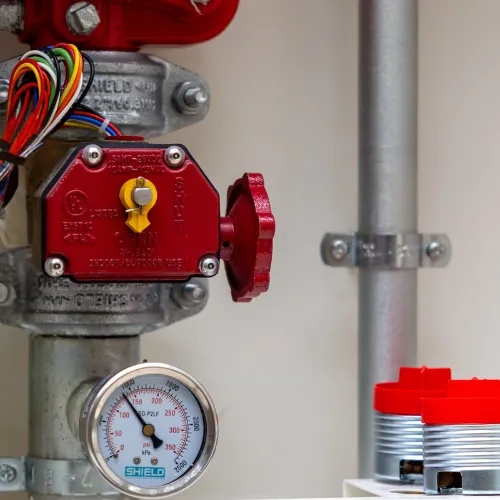Protect What Matters Most
We install robust and trusted fire sprinkler systems in commercial and NDIS dwellings, and residential homes.

Customised to your project
Discreet and stylish covers made to suit the style of your project, enabling you to ensure safety without compromising on design.

High Quality Systems
Using the highest quality materials, our trained professionals will install and implement your fire sprinkler system with precision and ease, with each system being designed specifically to the layout of your home.

Ensuring Safety
Fire sprinklers are extremely effective in controlling fires, and will often prevent life-threatening conditions and damage to your property. Our systems will ensure you and your loved ones are protected.
Our Services
Commercial Projects
Designer Fire Sprinklers offers Wet Fire Services.
Wet fire services refers to the installation, maintenance and management of fire protection systems that utilise water as the primary extinguishing agent.
Residential Projects
We are Australia's leading provider in home sprinklers.
We understand the unique needs of homeowners and work closely with architects, interior designers, and builders to create fire protection solutions that enhance the beauty and safety of your luxury home.
NDIS Projects
We provide residential fire sprinkler systems to all homes, including NDIS dwellings.
At Designer Fire Sprinklers, we believe all individuals should be protected.
60% of people who lose their lives in house fires have a disability, and we believe fire sprinkler protection will support these people from having a stronger chance of survival in the event of a house fire.
Frequently Asked Questions
Are residential sprinklers the same as bushfire sprinklers?
No, residential fire sprinklers and bushfire sprinklers serve different purposes and are designed differently to meet those needs.
Residential fire sprinklers are installed inside homes and buildings to protect against fires that occur within the structure. They are designed to activate at high temperatures that are typical of indoor fires, rapidly discharging water over a specific area to suppress the fire and prevent its spread.
Bushfire sprinklers, on the other hand, are designed for external use to protect properties from wildfires. These systems are often more robust and designed to cover a larger area to combat the intense heat and potentially large embers from approaching bushfires.
What are the benefits of installing a residential fire sprinkler system?
Installing a residential fire sprinkler system greatly enhances safety by automatically detecting and controlling fires, often extinguishing them before emergency services arrive. This can significantly reduce property damage and increase survival rates during a fire. Additionally, homeowners may benefit from lower insurance premiums due to the decreased risk of extensive fire damage.
How do the sprinkler systems work?
The sprinkler heads are designed to activate when they reach a temperature of 68°C. Each sprinkler head operates independently, releasing water only in the area where the heat is detected. This targeted response not only helps in controlling the fire quickly but also minimises water damage.
Can a sprinkler system be installed in an existing home, or just new homes?
Fire sprinkler systems can be installed in both new constructions and existing homes!
While it is easier and less costly to install during construction, retrofitting an existing home is entirely feasible. Retrofit installations may require some temporary disruption to home life, as ceilings and walls may need to be accessed to install pipes and sprinkler heads.
How much maintenance do residential fire sprinkler systems require?
We recommend that individuals get their sprinkler system maintained and checked over once every 6 months. This will allow us to ensure the system functions properly and complies with all safety standards.

